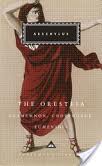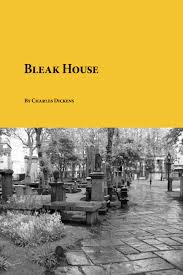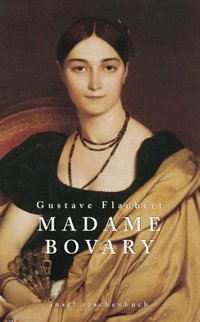Author Photo And Bio
 1. The Oresteia by Aeschylus (458 b.c.e.). Before Freud there was Aeschylus, who revealed the mind’s darkest impulses through this trilogy of plays mapping the mad round of retaliations that bring down the royal house of Atreus. In the first play, the Greek King Agamemnon—who sacrificed his daughter Iphigenia to appease the gods before setting sail for the Trojan War—and his slave, Cassandra, are slain by his wife, Clytemnestra. In the second play, Clytemnestra is slain by her son, Orestes (egged on by his sister Electra to avenge their father’s murder). In the final play, Orestes is freed from the Furies (or the curse) because, unlike the other characters—who search for scapegoats—he admits his own culpability, ending the cycle of violence through personal responsibility.
1. The Oresteia by Aeschylus (458 b.c.e.). Before Freud there was Aeschylus, who revealed the mind’s darkest impulses through this trilogy of plays mapping the mad round of retaliations that bring down the royal house of Atreus. In the first play, the Greek King Agamemnon—who sacrificed his daughter Iphigenia to appease the gods before setting sail for the Trojan War—and his slave, Cassandra, are slain by his wife, Clytemnestra. In the second play, Clytemnestra is slain by her son, Orestes (egged on by his sister Electra to avenge their father’s murder). In the final play, Orestes is freed from the Furies (or the curse) because, unlike the other characters—who search for scapegoats—he admits his own culpability, ending the cycle of violence through personal responsibility.
 2. The Mill on the Floss by George Eliot (1860). Familial duty has seldom been so sadly rendered, and Eliot drew much from her own childhood in creating Maggie Tulliver and her self-righteous brother Tom. Passionate Maggie gives up her lover out of propriety and deference to Tom, but the character was thought so wicked that many nineteenth-century girls were forbidden to read this book. Despite having lived with a married man herself, Eliot dealt Maggie a harsh fate.
2. The Mill on the Floss by George Eliot (1860). Familial duty has seldom been so sadly rendered, and Eliot drew much from her own childhood in creating Maggie Tulliver and her self-righteous brother Tom. Passionate Maggie gives up her lover out of propriety and deference to Tom, but the character was thought so wicked that many nineteenth-century girls were forbidden to read this book. Despite having lived with a married man herself, Eliot dealt Maggie a harsh fate.
 3. Bleak House by Charles Dickens (1853). Dickens is best known for his immense plots that trace every corner of Victorian society, and Bleak House fulfills that expectation to perfection. The plot braids the sentimental tale of an orphan unaware of her scandalous parentage with an ironic and bitterly funny satire of a lawsuit that appears to entail all of London. In doing so, the novel encompasses more than any other Dickens novel, shows the author’s mature skills, and is the only Victorian novel to include an incident of human spontaneous combustion.
3. Bleak House by Charles Dickens (1853). Dickens is best known for his immense plots that trace every corner of Victorian society, and Bleak House fulfills that expectation to perfection. The plot braids the sentimental tale of an orphan unaware of her scandalous parentage with an ironic and bitterly funny satire of a lawsuit that appears to entail all of London. In doing so, the novel encompasses more than any other Dickens novel, shows the author’s mature skills, and is the only Victorian novel to include an incident of human spontaneous combustion.
 4. Madame Bovary by Gustave Flaubert (1857). Of the many nineteenth-century novels about adulteresses, only Madame Bovary features a heroine frankly detested by her author. Flaubert battled for five years to complete his meticulous portrait of extramarital romance in the French provinces, and he complained endlessly in letters about his love-starved main character—so inferior, he felt, to himself. In the end, however, he came to peace with her, famously saying, “Madame Bovary: c’est moi.” A model of gorgeous style and perfect characterization, the novel is a testament to how yearning for a higher life both elevates and destroys us.
4. Madame Bovary by Gustave Flaubert (1857). Of the many nineteenth-century novels about adulteresses, only Madame Bovary features a heroine frankly detested by her author. Flaubert battled for five years to complete his meticulous portrait of extramarital romance in the French provinces, and he complained endlessly in letters about his love-starved main character—so inferior, he felt, to himself. In the end, however, he came to peace with her, famously saying, “Madame Bovary: c’est moi.” A model of gorgeous style and perfect characterization, the novel is a testament to how yearning for a higher life both elevates and destroys us.
 5. The Idiot by Fyodor Dostoevsky (1868). Prince Myshkin—epileptic, unworldly, sensitive—is the “idiot” of the title, but his gentle, generous nature forces readers to question that assumption. Myshkin (a scarcely disguised self-portrait of the author) tries again and again to help the people he encounters, only to have his efforts mocked or misunderstood. On the surface a love story, the novel is a contemplation of goodness in the world, and while its conclusions are dark, the portrait of this simple, good man endures.
5. The Idiot by Fyodor Dostoevsky (1868). Prince Myshkin—epileptic, unworldly, sensitive—is the “idiot” of the title, but his gentle, generous nature forces readers to question that assumption. Myshkin (a scarcely disguised self-portrait of the author) tries again and again to help the people he encounters, only to have his efforts mocked or misunderstood. On the surface a love story, the novel is a contemplation of goodness in the world, and while its conclusions are dark, the portrait of this simple, good man endures.
 6. The Betrothed by Alessandro Manzoni (1827). Romeo and Juliet had nothing on Renzo and Lucia, whose union is threatened by famine, plagues, riots, and the Thirty Years’ War. A vibrant portrait of seventeenth-century Lombardy, this novel combines a Dickensian cast of characters with Sir Walter Scott’s flair for romance. It is also a deeply religious work whose tragedies raise profound questions about God’s will and whose ultimate message is one of faith.
6. The Betrothed by Alessandro Manzoni (1827). Romeo and Juliet had nothing on Renzo and Lucia, whose union is threatened by famine, plagues, riots, and the Thirty Years’ War. A vibrant portrait of seventeenth-century Lombardy, this novel combines a Dickensian cast of characters with Sir Walter Scott’s flair for romance. It is also a deeply religious work whose tragedies raise profound questions about God’s will and whose ultimate message is one of faith.
 7. The Grapes of Wrath by John Steinbeck (1939). A powerful portrait of Depression-era America, this gritty social novel follows the Joad family as they flee their farm in the Oklahoma dust bowl for the promised land of California. While limping across a crippled land, Ma and Pa Joad, their pregnant daughter Rose of Sharon, and their recently paroled son Tom sleep in ramshackle Hoovervilles filled with other refugees and encounter hardship, death, and deceit. While vividly capturing the plight of a nation, Steinbeck renders people who have lost everything but their dignity.
7. The Grapes of Wrath by John Steinbeck (1939). A powerful portrait of Depression-era America, this gritty social novel follows the Joad family as they flee their farm in the Oklahoma dust bowl for the promised land of California. While limping across a crippled land, Ma and Pa Joad, their pregnant daughter Rose of Sharon, and their recently paroled son Tom sleep in ramshackle Hoovervilles filled with other refugees and encounter hardship, death, and deceit. While vividly capturing the plight of a nation, Steinbeck renders people who have lost everything but their dignity.
 8. The Confessions of Nat Turner by William Styron (1967). Based on an 1831 uprising, this Pulitzer Prize–winning novel is narrated by Nat, a slave who feels commanded by God to lead a rebellion. Yet even as he plots the murders of white slave-owners, Nat recognizes that all men are slaves to their own passions and greed. Poetically narrated, the book probes the essence of subjugation and freedom, the peculiar bonds that complicated the relationships of slaves and masters, and the meaning of history itself.
8. The Confessions of Nat Turner by William Styron (1967). Based on an 1831 uprising, this Pulitzer Prize–winning novel is narrated by Nat, a slave who feels commanded by God to lead a rebellion. Yet even as he plots the murders of white slave-owners, Nat recognizes that all men are slaves to their own passions and greed. Poetically narrated, the book probes the essence of subjugation and freedom, the peculiar bonds that complicated the relationships of slaves and masters, and the meaning of history itself.
 9. Stories of Eudora Welty (1909–2001). (See appreciation below.)
9. Stories of Eudora Welty (1909–2001). (See appreciation below.)
 10. Rites of Passage by William Golding (1980). The first volume of Golding’s sea trilogy, this Booker Prize–winning novel is set on an early nineteenth-century ship bound for Australia. The story, told through the journal entries of aristocrat Edmund Talbot, centers on the death of a parson on board. But the plot is secondary in this deeply observed, highly atmospheric tale that tackles three of the Nobel laureate’s favorite themes—the British class system, the nature of cruelty, and the sea.
10. Rites of Passage by William Golding (1980). The first volume of Golding’s sea trilogy, this Booker Prize–winning novel is set on an early nineteenth-century ship bound for Australia. The story, told through the journal entries of aristocrat Edmund Talbot, centers on the death of a parson on board. But the plot is secondary in this deeply observed, highly atmospheric tale that tackles three of the Nobel laureate’s favorite themes—the British class system, the nature of cruelty, and the sea.
Appreciation of the Stories of Eudora Welty by Louis D. Rubin Jr.
At first glance, the people Eudora Welty usually writes about seem unremarkable, as are the mostly Mississippi towns, cities, and countryside they live in.
To read her stories, however, such as “Why I Live at the P.O.,” “Petrified Man,” “Powerhouse,” “Moon Lake,” and “Kin,” is to learn otherwise. Through them you enter the realm of the extraordinary, as revealed in the commonplace. Each of Welty’s seemingly mundane people exhibits the depth, complexity, private surmise, and ultimate riddle of human identity. “Every-body to their own visioning,” as one of her characters remarks.
There is plenty of high comedy. Few authors can match her eye for the incongruous, the hilarious response, the bemused quality of the way her people go about their lives. There is also pathos, veering sometimes into tragedy, and beyond that, awareness of what is unknowable and inscrutable.
Her most stunning fiction is the group of interconnected stories published in 1949 as The Golden Apples. These center on the citizenry of Morgana, Mississippi, over the course of some four decades. In “June Recital” German-born Miss Lottie Elisabeth Eckhart teaches piano to the young. These include Cassie Morrison, who carries on her teacher’s mission, and Virgie Rainey, most talented of all, who in spite of herself absorbs “the Beethoven, as with the dragon’s blood.” In the closing story, “The Wanderers,” Virgie sits under a tree not far from Miss Eckhart’s grave and gazes into the falling rain, hearing “the magical percussion” drumming into her ears: “That was the gift she had touched with her fingers that had drifted and left her.”
Welty’s richly allusive style, alive to nuance, is not really like anyone else’s. The dialogue (her characters talk at rather than to one another), the shading of Greek mythology and W. B. Yeats’s poetry into the rhythms of everyday life in Morgana, the depth perception of a major literary artist, all make her stories superb.